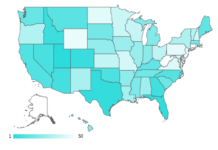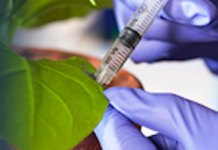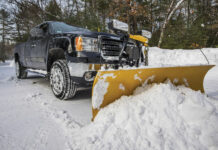Update
On Thursday, April 16, 2020, the SBA announced a lapse in appropriations for the EIDL program related to COVID-19. From its website: “SBA is unable to accept new applications at this time for the Economic Injury Disaster Loan (EIDL)-COVID-19 related assistance program (including EIDL Advances) based on available appropriations funding.
Applicants who have already submitted their applications will continue to be processed on a first-come, first-served basis.”
———
Signed into law on March 6, the Coronavirus Preparedness and Response Supplemental Appropriations Act (CARES) expands the U.S. Small Business Administration’s (SBA) existing Economic Injury Disaster Loans, or EIDL program, to offer $7 billion in loans to small businesses impacted by COVID-19. The U.S. Chamber of Commerce offers the following guidance on the loan.
General parameters for eligibility include: businesses with fewer than 500 employees; sole proprietors; independent contractors; cooperatives, ESOPs, and tribal small businesses; and most private non-profits. These loans may be used by small businesses to pay fixed debts, payroll, accounts payable, and additional bills that can’t be paid because of COVID-19’s impact.
![]() To provide immediate relief, SBA offers a $10,000 emergency grant designed to be available within three days of applying. (It should be noted: according to articles from Fast Company and The Wall Street Journal published April 7 and 8 respectively, of those who applied early last week when the application went live, many are still awaiting funds.) There is no obligation to repay the grant and it is not necessary to have an approved EIDL loan. However, if you are able to secure a Paycheck Protection Program loan instead, also offered by the SBA, the $10,000 grant will be subtracted from the forgiveness amount. The CARES Act prohibits borrowers from taking out two loans for the same purpose.
To provide immediate relief, SBA offers a $10,000 emergency grant designed to be available within three days of applying. (It should be noted: according to articles from Fast Company and The Wall Street Journal published April 7 and 8 respectively, of those who applied early last week when the application went live, many are still awaiting funds.) There is no obligation to repay the grant and it is not necessary to have an approved EIDL loan. However, if you are able to secure a Paycheck Protection Program loan instead, also offered by the SBA, the $10,000 grant will be subtracted from the forgiveness amount. The CARES Act prohibits borrowers from taking out two loans for the same purpose.
What are the Loan Parameters?
- The maximum EIDL is a $2 million working capital loan at a rate of 3.75% for businesses and 2.75% for non-profits with up to a 30-year term.
- Payments on Coronavirus EIDL loans are deferred for one year.
- The SBA has amended its disaster loan criteria to help borrowers still paying back SBA loans from previous disasters. By making this change, deferments through December 31, 2020, will be automatic. Hence, borrowers of home and business disaster loans do not have to contact SBA to request deferment.
- The SBA loans come with long-term repayments, up to a maximum of 30 years, in an effort to keep payments affordable. Loan terms are determined on a case-by-case basis, according to individual borrower’s ability to repay.
- Up to $200,000 can be approved without a personal guarantee.
- Approval can be based on a credit score and no first-year tax returns are required.
- Borrowers do not have to prove they could not get credit elsewhere.
- No collateral is required for loans of $25,000 or less. For loans of more than $25,000, general security interest in business assets will be used for collateral instead of real estate.
- The borrowers must allow the SBA to review its tax records.
Application Process
Apply online by filling out the appropriate forms and providing your business’s information. Once you download the forms for your application, check off “economic injury” as your reason for filing. Then follow the instructions and fill in the necessary information. Once you re-upload your application, you can check the status of it at any time by visiting the website.
Be prepared with some financial information and supporting documentation related to your business, like two to three years of tax returns, last year’s financial statements, a year-to-date financial statement, property leases, and a working knowledge of your business and personal credit score. A full list of supporting documentation can be found at the bottom of your application form.
See more of Turf Special COVID-19 coverage on “essential business” designations, new federal sick leave policies, and new broader qualifications for unemployment.











![[VIDEO] Dickies®: Discover Workwear That’s Anything But Uniform](https://turfmagazine.com/wp-content/uploads/2023/06/1647663814-4b1a2a7742790a9b1e97a3b963477850192e1d6a9dfba9b07214a77bae25d6e3-d-218x150.jpg)






























![[VIDEO] Dickies®: Discover Workwear That’s Anything But Uniform](https://turfmagazine.com/wp-content/uploads/2023/06/1647663814-4b1a2a7742790a9b1e97a3b963477850192e1d6a9dfba9b07214a77bae25d6e3-d-324x160.jpg)